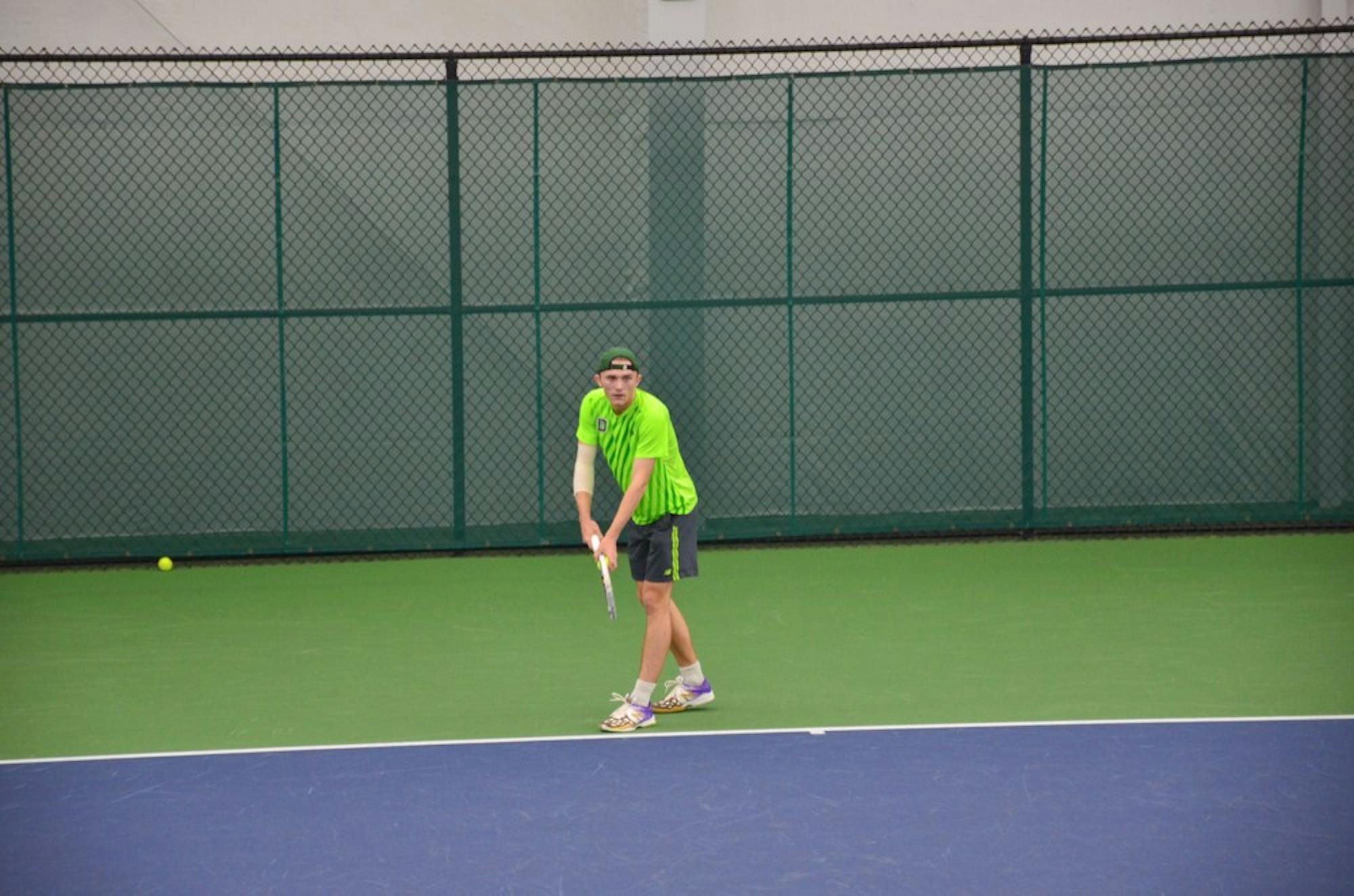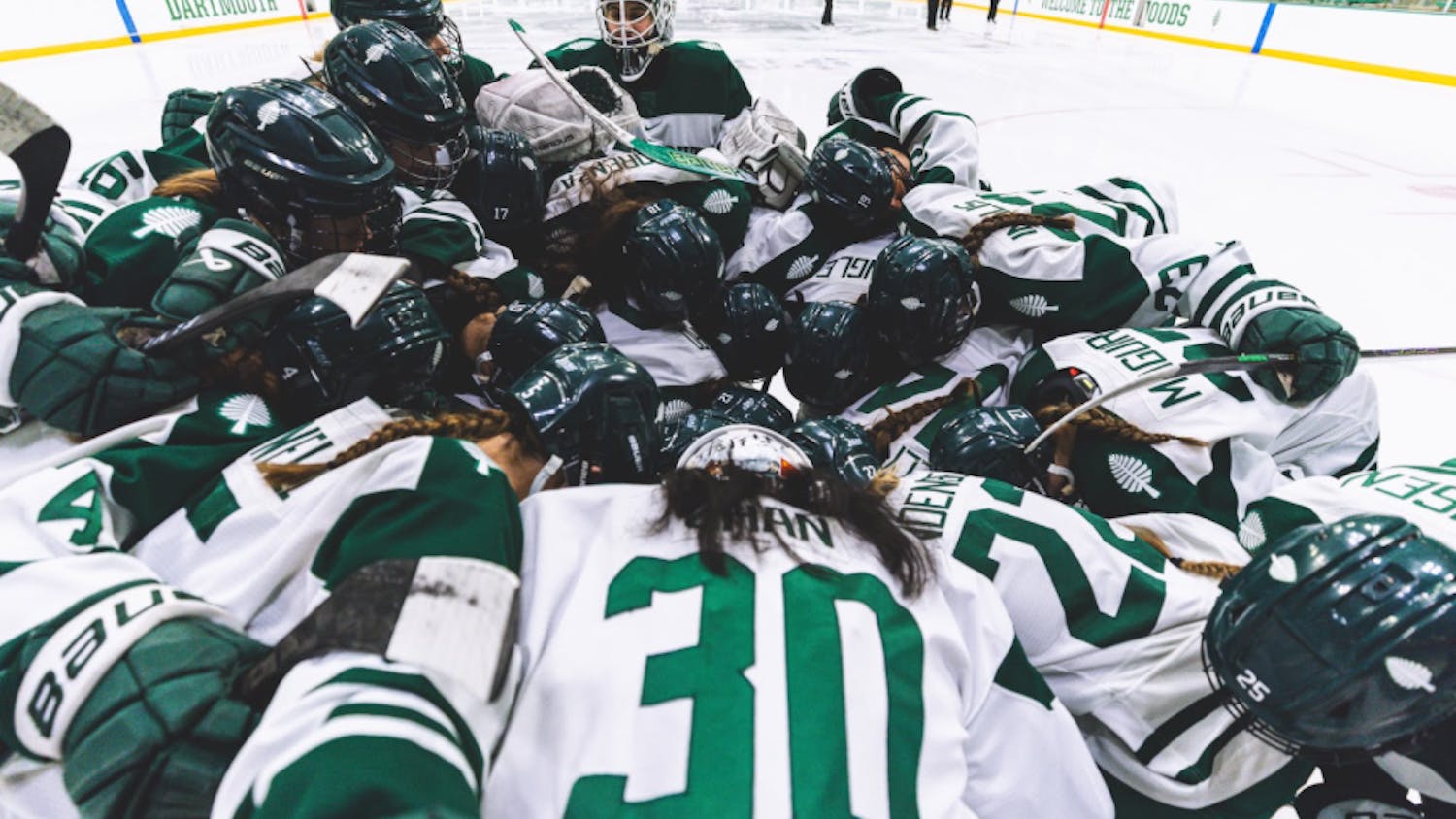The Dartmouth men’s tennis team’s 2015-16 season has been rock solid, with the team currently sporting an impressive 15-8 record. The team has scored highlight wins over many quality opponents, including then No. 37 Drake University and then No. 32 Tulane University.
The team has successfully found a balance between both its singles and doubles play, going 146-78 to win 65.1 percent of singles matches and 65-31 to win 67.7 percent of doubles matches. However, these statistics are unreflective of the season, as this includes statistics from tournaments but does not reflect streaks.
While the team dominated singles in January, going 26-9, the team has cooled down considerably since then, recording a record of 51-34. On the other hand, the doubles teams have gone in the opposite trend. While the doubles teams went 11-7 overall in matches but only 3-3 in doubles points secured in January, the team since then has gone 30-14 overall with an outstanding 12-5 in doubles points secured. While the win-loss record has remained relatively consistent throughout the season, the high percentage of doubles points won is highly impressive. To win the doubles point, the team needs to win two of three of the doubles matches, each of which is only one set.
Played before the singles, a victory in the best out of three doubles matches can give the team a significant morale boost. One reason for the solid doubles performance since the end of January is the solidification of the lineup.
“We’ve moved it twice, so we’re kind of in our third variation of our doubles team,” head coach Chris Drake said. “We’re trying to look for people who complement each other in their games and their personalities on the court. That’s something that’s very important as you try to play as one team and one unit out there.”
George Wall ’17 echoed a similar sentiment. The last four matches have been especially encouraging for the doubles team.
“We’re always trying to find our best doubles combinations and lineup, and I think we’re really starting to get it right,” Wall said. “We’ve won our last four doubles points now against strong teams and that’s been from good pairings and executing fundamentals which make you successful in doubles.”
While the doubles point is important, it only counts for one out of the seven possible points. The six singles matches count for the other six. One of the main reasons for the weaker singles record is a tougher schedule and the increase of away opponents. While double matches consist of only one set, single games are best out of three. Thus, the away atmosphere can have a much larger impact on the outcome, giving opponents who train on those courts every day a much greater advantage. This can be seen especially during the month of February, in which the team’s singles failed to surpass a 3-3 record for its first three games. Overall, the team has gone 10-1 in home games and 5-7 in away games.
“We hit the road a bit in February and March,” Wall said. “[It’s] never easy to win at opposition venues where the opponent trains day in, day out. But we get better for that exposure to unfamiliar conditions where the court speeds are different and the home fans are scrappy. We’re benefitting from that travel now in Ivy season.”
To win the match, the team needs four points, one of which could be the doubles point. With mostly upperclassmen in the singles lineup, the team has done extremely well in high-pressure situations this year. The team has won exactly three singles points in four of the last nine games, which along with a doubles victory, is just enough to secure the overall match victory.
It’s important to note that despite the trends, the singles players have also helped win several matches despite the doubles loss. One of the goals for the team going forward is to play a more complete game in both singles and doubles.
“Our singles carried us to a couple of big wins over Tulane and Drake,” Drake said. “The doubles and singles have been a bit back and forth. We’ve been streaky. Hopefully at the end, what we really want to do is to play a complete match, compete well in doubles and have a complete match in singles as well.”
Wall, who plays both singles and doubles, noted that there is a fundamental difference in approach to the two. However, he stressed that both were equally important and fundamental to the team’s success.
“Doubles is just one set. It flies by,” Wall said. “You have to be ready to go right away and play aggressive tennis from the get-go. In singles, there’s more of an opportunity to work your way into the match and figure your opponent out....We value every court, and the approach doesn’t change from doubles to singles. We want to be competitive and combative at every spot.”




